How SkatePro Conquered the Market with Automated Product Descriptions
Reading Time 6 mins | May 26, 2021 | Written by: Carina Meyer
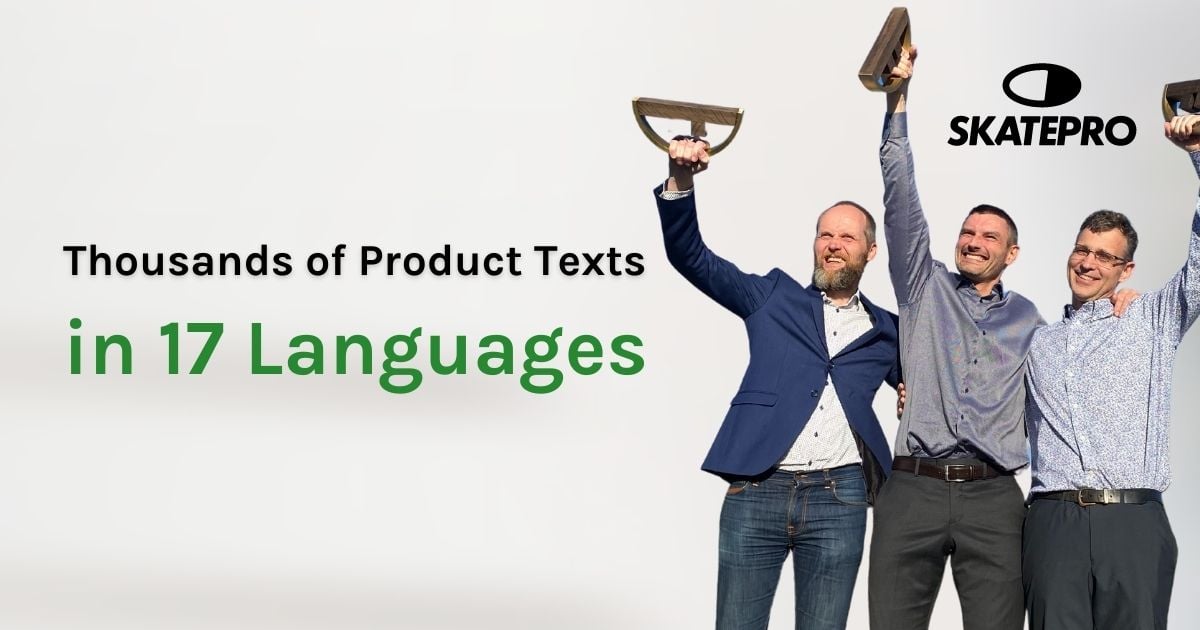
SkatePro is an e-commerce company that has obviously made it: Last week, the action sports article retailer won three prizes at the Danish ‘e-handelspris’. Including the gold prize, which goes to the most courageous company.

Founder and Chairman of SkatePro; Jakob Høy Biegel is particularly proud of this hat-trick award:
"As founder of SkatePro, I am very proud of the whole SkatePro team, which achieved great results for 2020. The prize is recognized and awarded by the “The Danish Chamber of Commerce". SkatePro has won e-commerce prizes some years ago, but today we have a very high level of e-commerce companies in Denmark, which makes me even more proud that SkatePro won 3 e-commerce prizes for this year's e-commerce awards."
The story of SkatePro began 25 years ago when student and skater Jakob Høy Biegel was himself searching for wheels for his inline skates. He found the best ones in the USA and ordered as many as he could to provide his skater friends with the best equipment, as well. What started with a warehouse right under his bed soon became a professional business that he eventually ran full time and his studies became a thing of the past.
Today, the online store is localized in 25 countries and has 235 permanent employees. They now account for almost as much profit as they had in revenue 5 years ago.
But what makes SkatePro so successful?
Perhaps it can be summed up like this: It seems like SkatePro, despite its size, still sells the best to friends.
Niels Ralund, the CEO of e-commerce at the Danish Chamber of Commerce, highlights the company's export success and attributes it to its ability to build remarkable customer relationships. When it comes to digital commerce, customer relationship and export, he considers SkatePro to be a great inspiration.
The close customer relationship is so central to SkatePro that it has also proven to be a strategy to not give Amazon or other big players a chance to capture the action sports market. Carsten Schmitt, the current CEO of SkatePro describes it on the site of Dansk Erhverv as follows: "Amazon, Alibaba or others could spend a lot of money and create a SkatePro 2.0, but they will have a very hard time creating that culture and passion that we have, and get such a close relationship with the customers. You can't buy this with money, and it helps us a lot against our competitors."
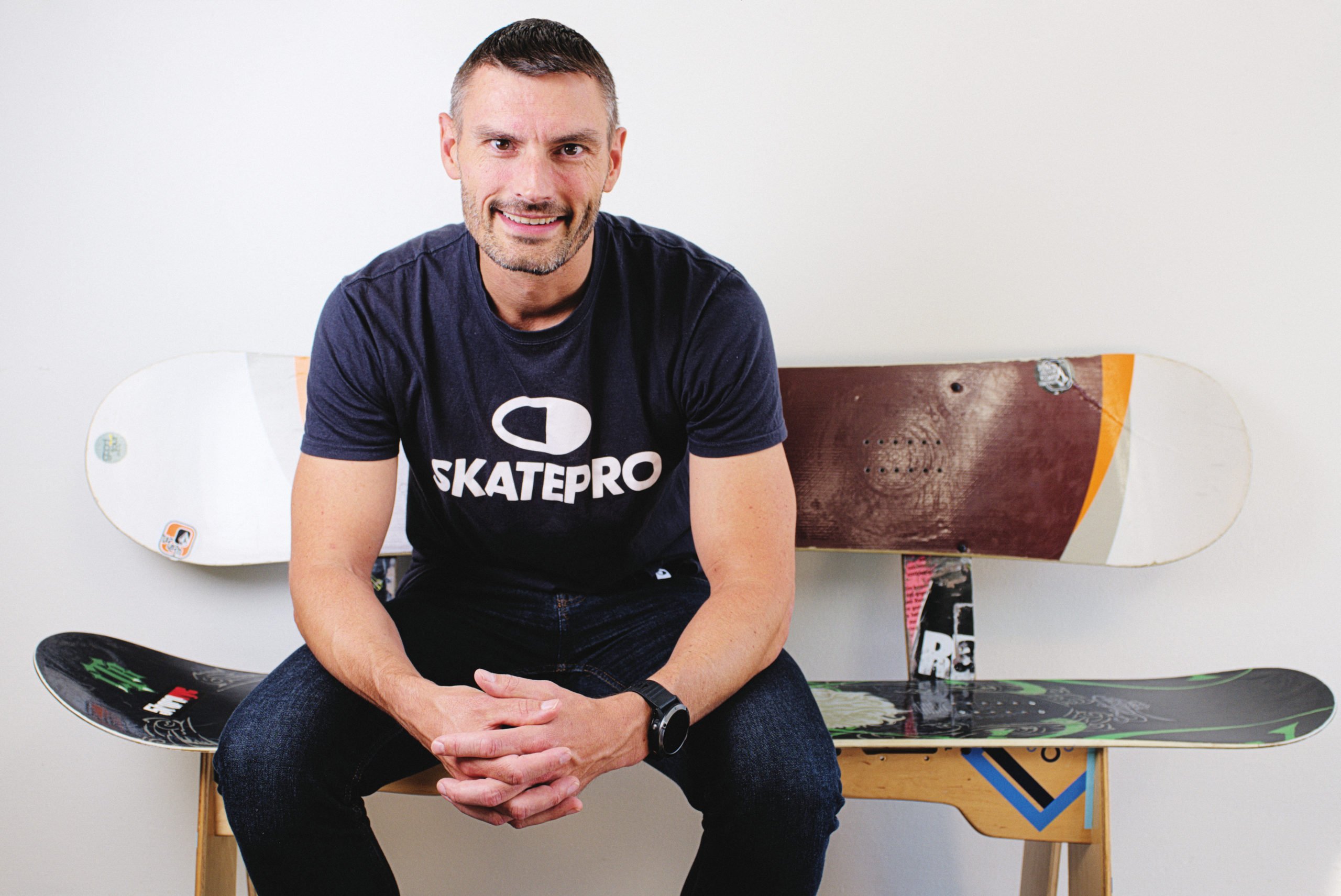
Due to the sudden demand for online retail triggered by the Coronavirus crisis, SkatePro responded by prioritizing customer relations, scaling down marketing activities to focus on continuously providing a good customer experience.
Locally anchored - a driver for a good customer relationship and a good export result?
Carsten Schmidt makes it clear in the article from Dansk Erhverv that localization is elementary for SkatePro, in order to create a good customer experience. He says: “We also have a very clear ambition to become more locally anchored in the markets. We must be local and global at the same time. That is why our goal is to recruit more people from different countries, so that we can get even better insight into what is moving around in the markets.”
Automated product descriptions help SkatePro with localization.
With regard to localization, in addition to locally anchored customer service, the presentation of products in the respective local context plays an essential role for good digital sales advice. In the case of SkatePro, whose online store is localized in 25 countries, there are 17 different languages spoken in the respective markets. This comes with many challenges. Writing product descriptions in one language in a reasonable amount of time to quickly provide good online presentation and sales advice is already a challenge. However, projecting that onto 17 different languages is almost impossible. Waiting times for translations occur, publications are difficult to plan, translated copy does not meet SEO or online requirements and a lot of resources are needed. The challenges of translations become clear through Google Translate or other digital translation service providers.
Literal translation does not provide the local context, which is highly necessary to make a trustworthy and respectful impression.
In this example, “It comes with the Standard Ambossed trucks with jelly bushings” is translated as “Es kommt mit den Standard Abmossed LKW mit Jelly Bushings”. Truck means lorry in German. Of course, this is absolutely not how it is meant.
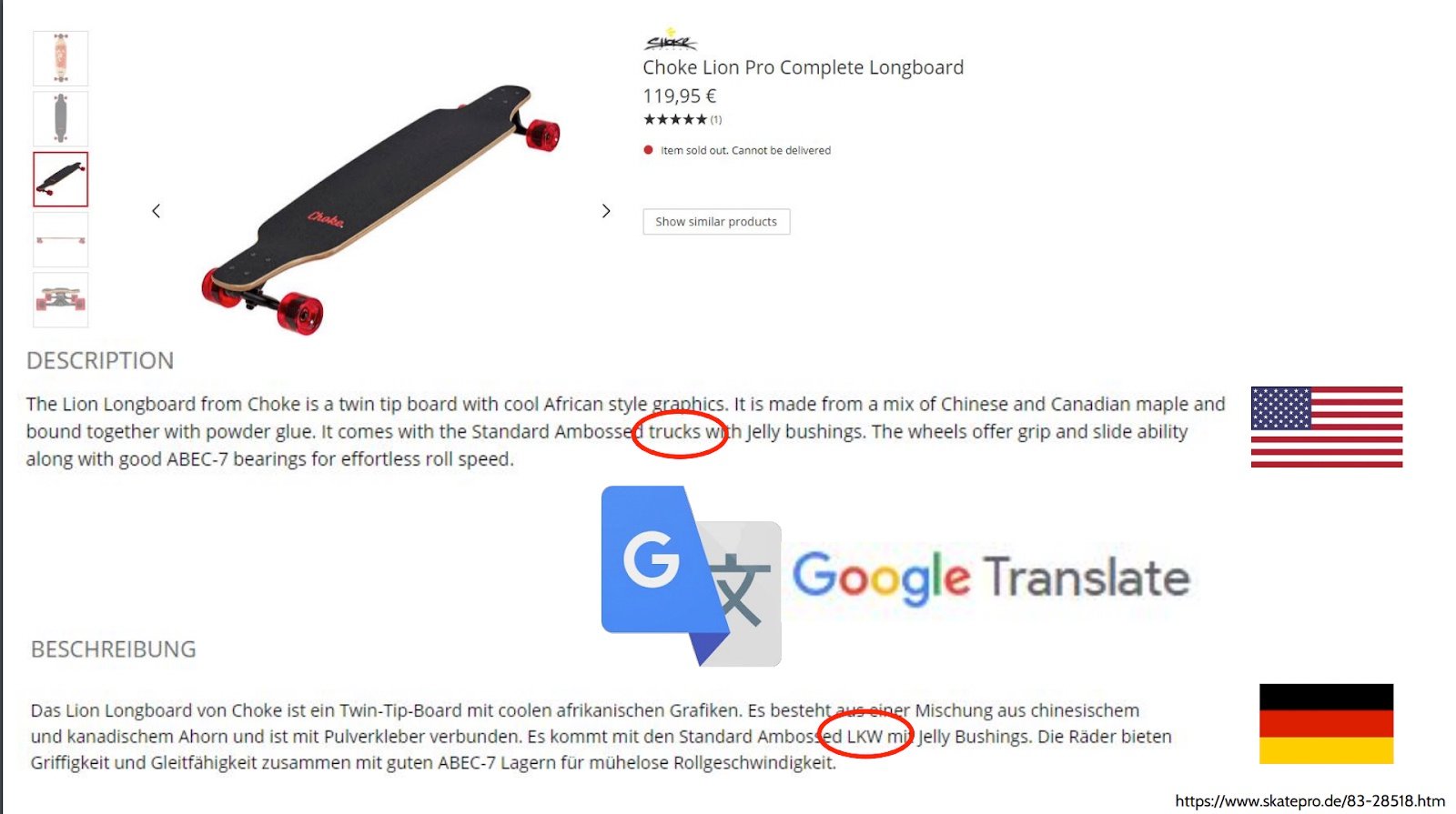
But it's no surprise that SkatePro, as a Gold Award winner, is smart about this, too. To be able to map thousands of product descriptions in 17 different languages, SkatePro automates the descriptions using a product description generator. The copy continues to be localized by people who know and can assess the local market - but this is an initial effort and no longer needs to be done for each copy. The descriptions in the respective languages thus remain correct and accurate, also SEO and other online requirements for the descriptions are met because they are implemented more centrally.
The key thing, however, is speed. With automated content creation SkatePro was able to generate descriptions in 17 different languages for the first 3,300 products within one year. In other words, a total of 56,000 product descriptions. And this result will continue to accelerate. This has enabled them to significantly reduce their time-to-market.
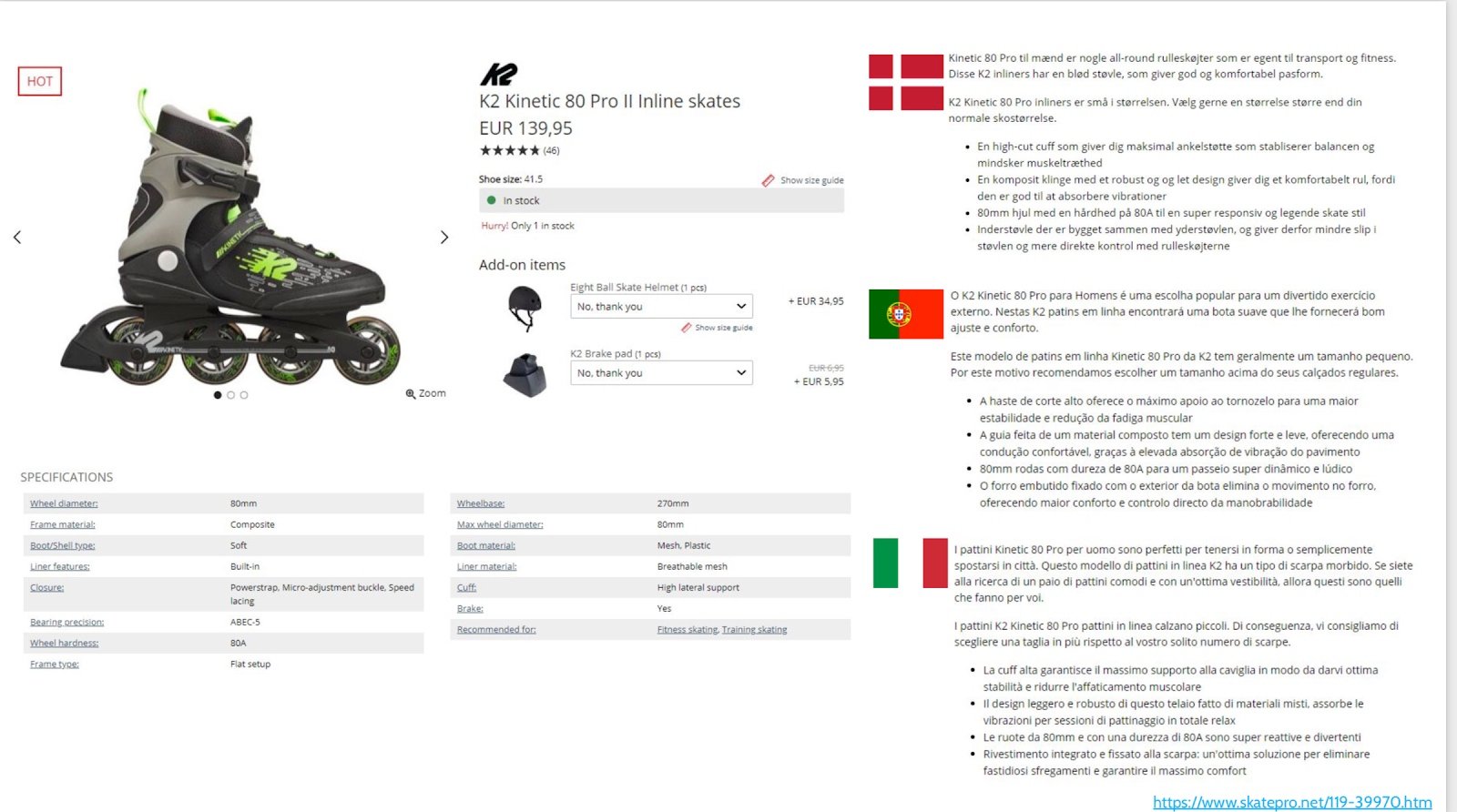
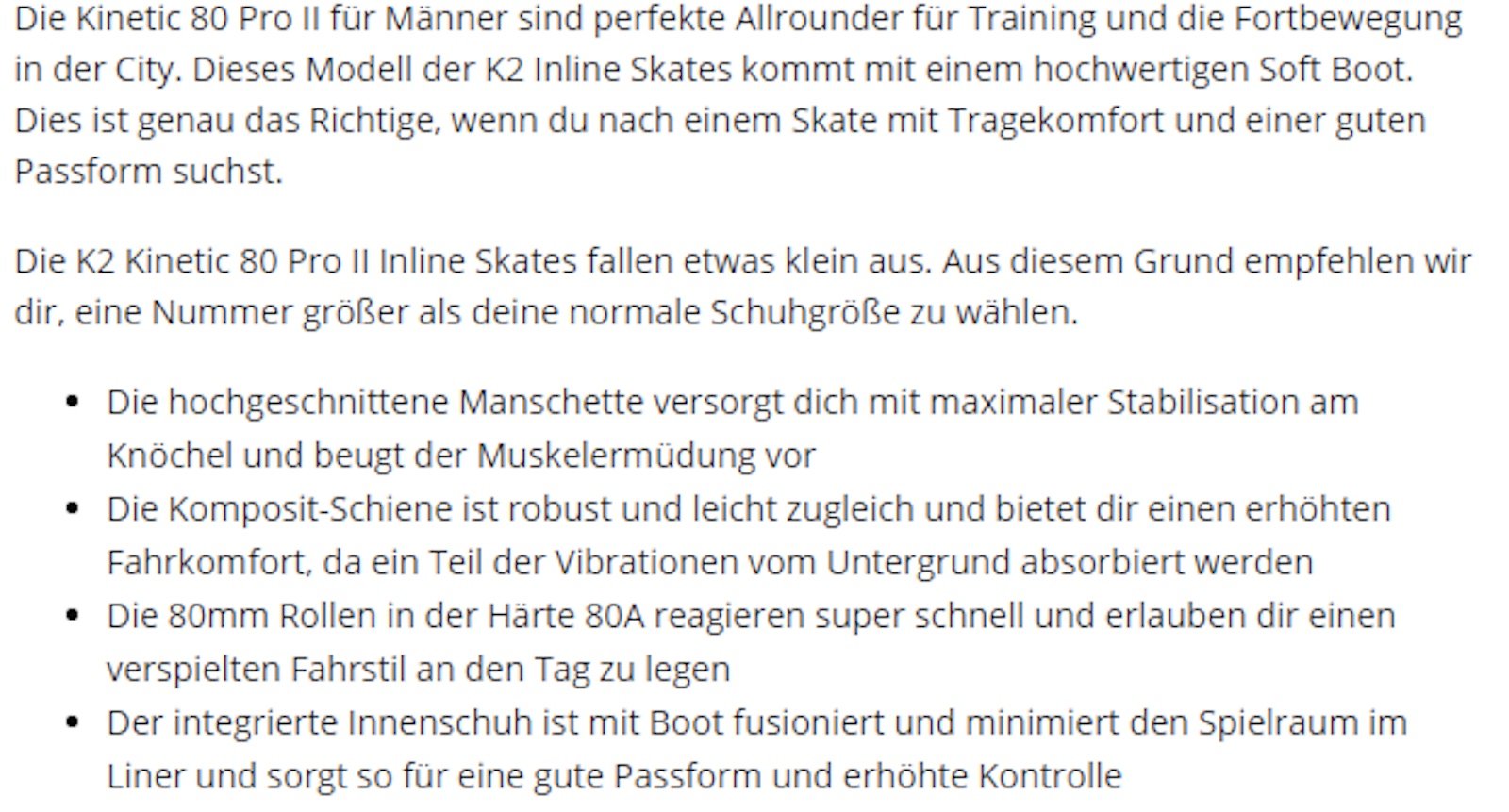
SkatePro at our Meetup: From 16% content automation to 50% in only 3.5 months - great success for SkatePro
Now all that remains is: Congratulations!
We are delighted that a company like SkatePro is using our technology. We also feel the positive energy and passion that the company exudes. Congratulations on the well-deserved awards, SkatePro!
